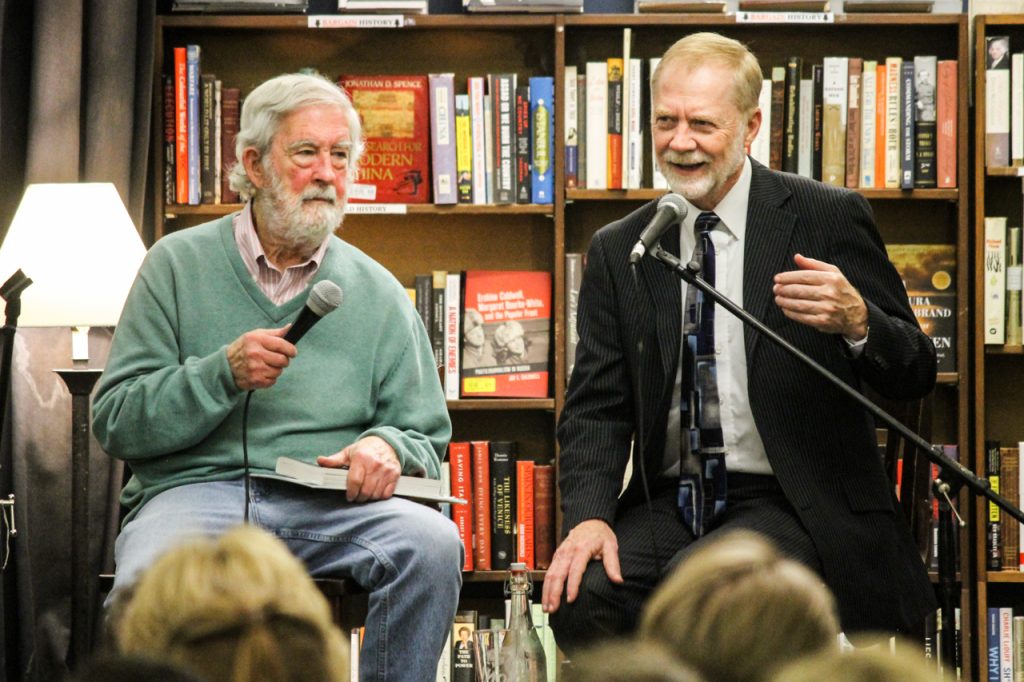
A newly released true crime autobiography follows a journalist pursuing and retiring monumental civil rights era cold cases in Mississippi. Jerry Mitchell, an award-winning investigative reporter and the subject of the book, discussed the story behind his new book with associate professor Curtis Wilkie at Off Square Books on Tuesday.
Mitchell’s book, “Race Against Time,” details how he reopened four cold case murders from the Civil Rights era, including the assasination of civil rights leader Medgar Evers, the firebombing of civil rights leader Vernon Dahmer, the 16th Street bombing in Birmingham, Alabama, and the “Mississippi Burning” case in Neshoba County.
Mitchell began his investigation of the Mississippi Burning case after he covered a screening of the 1998 film adaptation of the murders.
“The thing that I couldn’t wrap my head around was there were more than 20 Klansmen that were involved in killing these three young men, and none of them were prosectuted for murder,” Mitchell said.
Mitchell is the leader of the Mississippi Center for Investigative Reporting. He most notably wrote for The Clarion-Ledger where he began the investigation. He is a winner of the MacArthur Foundation grant, among other awards since his investigations in the 1990s.
Mitchell did not pursue any of the cases specifically but began reporting on the Evers case that was reopened by the FBI.
“I wasn’t thinking beyond that case,” Mitchell said, “but there was always more material to write about.”
As time went on, Mitchell considered other cases that would later be mentioned in his book, as well as the people who reached out to him about reopening cases similar to the ones he had covered before.
“It dawned on me when I was working on the ‘Mississippi Burning’ case,” Mitchell said. “I was wondering, ‘Can that be opened?’”
Mitchell said he delved further into his investigations, determined to retire the cases. He said that in order to get information about the case, he had to acquire sealed documents about former Ku Klux Klan organizer Edgar Killen at the time of his persecution.
“If someone tells me I can’t have something, I want it a million times worse,” Mitchell said.
Wilkie asked Mitchell to share his experience with interviewing what he referred to as “cold-blooded killers.” Mitchell described Byron De La Beckwith, former Klansman who assassinated Evers, as an example.
“(Beckwith) was absolutely the most racist person I’ve ever spent serious time with,” said Mitchell.
The awards and praise Mitchell received are testament to the quality of his reporting done on the four cases he covered, according to Wilkie.
“These cases may not have happened without (Mitchell),” Wilkie said.
In reporting on such monumental cases, Mitchell said that he felt incredibly rewarded, but he has benefitted beyond accolades and awards through meeting the families of those affected by the crimes.
“I think journalism is one of the most noble professions,” Mitchell said. “It’s getting harder for young people these days to get inspired, but I hope they do.”



























